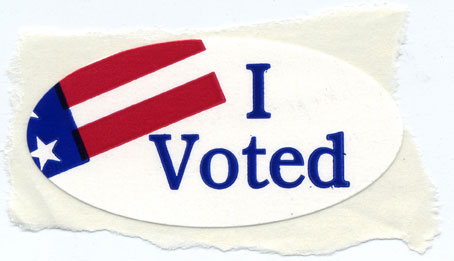“Democratic Vistas” by Walt Whitman
Political democracy, as it exists and practically works in America, with all its threatening evils, supplies a training school for making first-class men. It is life’s gymnasium, not of good only, but of all. We try often, though we fall back often. A brave delight, fit for freedom’s athletes, fills these arenas, and fully satisfies, out of the action in them, irrespective of success. Whatever we do not attain, we at any rate attain the experiences of the fight, the hardening of the strong campaign, and throb with currents of attempt at least. Time is ample. Let the victors come after us. Not for nothing does evil play its part among us. Judging from the main portions of the history of theworld, so far, justice is always in jeopardy, peace walks amid hourly pitfalls, and of slavery, misery, meanness, the craft of tyrants and the credulity of the populace, in some of the protean forms, no voice can at any time say, They are not. The clouds break a little, and the sun shines out-but soon and certain the lowering darkness falls again, as if to last forever. Yet is there an immortal courage and prophecy in every sane soul that cannot, must not, under any circumstances, capitulate. Vive, the attack–the perennial assault! Vive, the unpopular cause–the spirit that audacious]y aims–the never-abandoned efforts, pursued the same amid opposing proofs and precedents.
Once, before the war (alas! I dare not say how many times the mood has come!) I, too, was filled with doubt and gloom. A foreigner, an acute and good man, had impressively said to me, that day-putting in form, indeed, my own observations: “I have traveled much in the United States, and watched their politicians, and listened to the speeches of the candidates, and read the journals, and gone into the public-houses, and heard the unguarded talk of men. And I have found your vaunted America honeycombed from top to toe with infidelism, even to itself and its own program. I have marked the brazen hell-faces of secession and slavery gazing defiantly from all the windows and doorways. I have everywhere found, primarily, thieves and scalliwags arranging the nominations to offices, and sometimes filling the offices themselves. I have found the north just as full of bad stuff as the south. Of the holders of public office in the Nation or the States or their municipalities, I have found that not one in a hundred has been chosen by any spontaneous selection of the outsiders, the people, but all have been nominated and put through by little or large caucuses of the politicians, and have got in by corrupt rings and electioneering, not capacity or desert. I have noticed how the millions of sturdy farmers and mechanics are thus the helpless supple-jacks of comparatively few politicians. And I have noticed, more and more, the alarming spectacle of parties usurping the government, and openly and shamelessly wielding it for party purposes. Continue reading ““Democratic Vistas” — Walt Whitman” →

